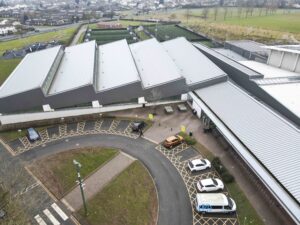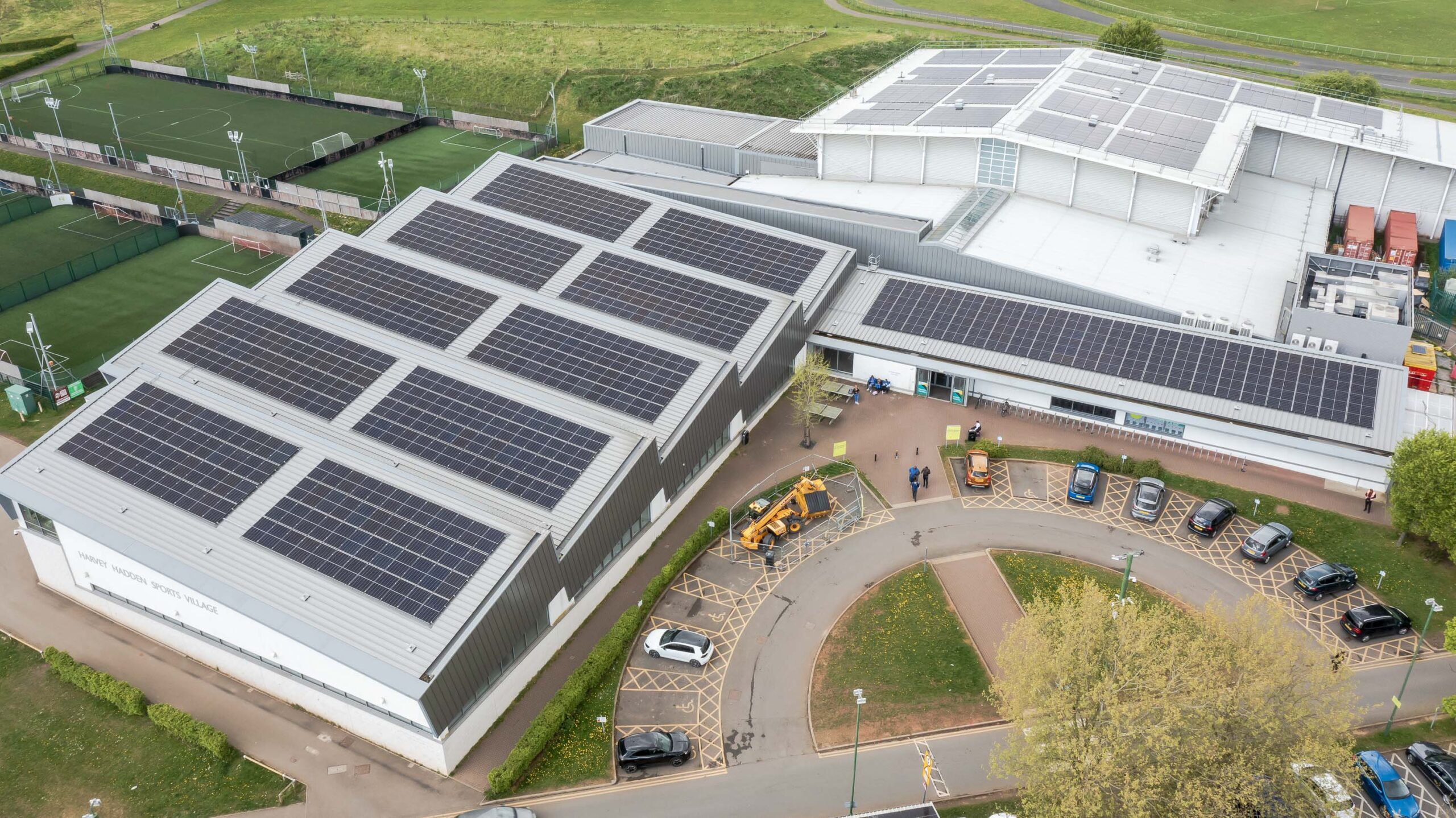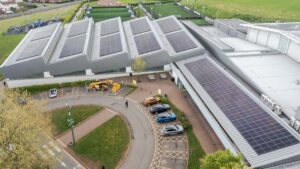Work to install a state-of-the-art solar energy system at Harvey Hadden Leisure Centre in Bilborough, Nottingham, has been completed, significantly cutting the centre’s reliance on grid electricity and reducing carbon emissions.
676 solar PV panels (1,365 square metres) have been added to the rooftop above the swimming pool, generating clean, renewable energy directly for the site.
They will:
- Generate up to 257,752kwh each year (enough to drive an electric car around earth 43 times!)
- Save £4 million in energy costs over the next 30 years.
- Offset more than 60kg tonnes of carbon emissions each year. (It would take 3 trees a full year to absorb that amount.)
Around 79 per cent of the energy generated will be consumed on-site, supporting the centre’s daily operations. Any surplus energy is cleverly diverted to an electric pool heater, reducing the site’s reliance on gas and boosting overall energy efficiency.
This integration not only increases the sustainability of the leisure centre but also further reduces its carbon footprint.
The initiative, which represents an investment of more than £400,000, forms part of the council’s broader ambitions to become carbon neutral by 2028 and supports continued investment in sustainable infrastructure across the city.

Harvey Hadden is one of the largest leisure facilities in Nottingham, with a 10-court sports hall, gym and 50-metre pool. It is also one of the highest energy consumers in the council’s estate, accounting for nearly five per cent of the local authority’s total annual energy usage.
Nottingham City Council Executive Member for Carbon Reduction, Leisure and Culture, Cllr Sam Lux, said: “The completion of phase 3 solar PV installation at Harvey Hadden Leisure Centre is a testament to Nottingham City Council’s commitment to achieving carbon neutrality.
“As one of the council’s highest energy-consuming sites, converting the facility to run on clean, renewable energy demonstrates our proactive approach to reducing emissions, cutting costs and improving energy efficiency.”
Construction company Lindum Group managed the project on behalf of the council. It worked with UK Alternative Energy and Empire Scaffolding GM Ltd (based just four miles from site) to install more than 307.58kWp of high-performance, Tier 1 solar panels across multiple roof areas of the centre.
Lindum conducted a detailed structural and environmental assessment to ensure maximum performance with minimal impact and roof integrity and safety were prioritised through pre- and post-installation roof conditioning, alongside the extension of the existing Mansafe system for ongoing maintenance.
The completed project was procured via the Scape Regional Construction framework and was designed and delivered in line with rigorous standards, including ENA G99 regulations, BS EN 62305 for lightning protection, and the MCS certification scheme.

Lindum Group Director Richard Shaw said: “This has been a good project which showcases what’s possible when smart design meets sustainability goals. Harvey Hadden is now equipped with a clean energy system that will deliver cost and carbon savings for decades to come.
“To support this installation, Lindum integrated a comprehensive electrical infrastructure. A central inverter was installed within the site’s plant room with all cabling and containment systems installed to current best practices and futureproofed with capacity for system expansion.”
Derrick Denton, director of UK Alternative Energy Limited, said the bespoke Solaredge system has a cloud-based monitoring platform, which provides real-time insight into energy production and carbon savings, along with the ability to identify faults quickly and reduce down time, helping the council accurately track performance and maximise return on investment. The inverters have also been integrated into the BMS system and will shut down should the fire alarm be activated.
He said: “This project was very time sensitive. However, with good collaboration and planning with Lindum, the project came in on budget and in the time allotted.”
The scheme was funded through the Salix Recycling Fund – a partnership between Nottingham City Council and Salix Finance, which provides conditional grants to support low-carbon projects across the council’s estate.



